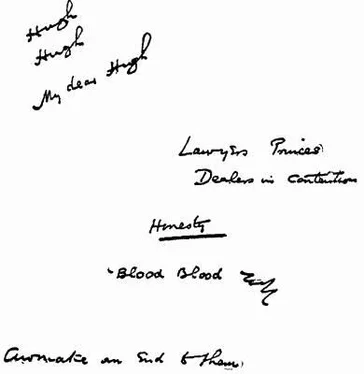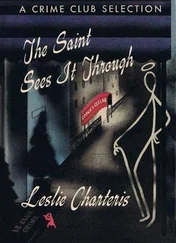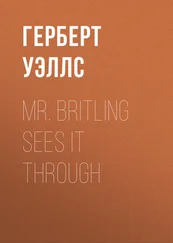Herbert Wells - Mr. Britling Sees It Through
Здесь есть возможность читать онлайн «Herbert Wells - Mr. Britling Sees It Through» весь текст электронной книги совершенно бесплатно (целиком полную версию без сокращений). В некоторых случаях можно слушать аудио, скачать через торрент в формате fb2 и присутствует краткое содержание. Жанр: Классическая проза, на английском языке. Описание произведения, (предисловие) а так же отзывы посетителей доступны на портале библиотеки ЛибКат.
- Название:Mr. Britling Sees It Through
- Автор:
- Жанр:
- Год:неизвестен
- ISBN:нет данных
- Рейтинг книги:4 / 5. Голосов: 1
-
Избранное:Добавить в избранное
- Отзывы:
-
Ваша оценка:
- 80
- 1
- 2
- 3
- 4
- 5
Mr. Britling Sees It Through: краткое содержание, описание и аннотация
Предлагаем к чтению аннотацию, описание, краткое содержание или предисловие (зависит от того, что написал сам автор книги «Mr. Britling Sees It Through»). Если вы не нашли необходимую информацию о книге — напишите в комментариях, мы постараемся отыскать её.
Mr. Britling Sees It Through — читать онлайн бесплатно полную книгу (весь текст) целиком
Ниже представлен текст книги, разбитый по страницам. Система сохранения места последней прочитанной страницы, позволяет с удобством читать онлайн бесплатно книгу «Mr. Britling Sees It Through», без необходимости каждый раз заново искать на чём Вы остановились. Поставьте закладку, и сможете в любой момент перейти на страницу, на которой закончили чтение.
Интервал:
Закладка:
Their disposition towards under-feeding and a certain lack of fine sentiment were the only flaws in the English scheme that Herr Heinrich admitted. He certainly found the English unfeeling. His heart went even less satisfied than his Magen. He was a being of expressive affections; he wanted great friendships, mysterious relationships, love. He tried very bravely to revere and to understand and be occultly understood by Mr. Britling; he sought long walks and deep talks with Hugh and the small boys; he tried to fill his heart with Cissie; he found at last marvels of innocence and sweetness in the Hickson girl. She wore her hair in a pigtail when first he met her, and it made her almost Marguerite. This young man had cried aloud for love, warm and filling, like the Mittagsessen that was implicit in their understanding. And all these Essex people failed to satisfy him; they were silent, they were subtle, they slipped through the fat yet eager fingers of his heart, so that he fell back at last upon himself and his German correspondents and the idealisation of Maud Hickson and the moral education of Billy. Billy. Mr. Britling's memories came back at last to the figure of young Heinrich with the squirrel on his shoulder, that had so often stood in the way of the utter condemnation of Germany. That, seen closely, was the stuff of one brutal Prussian. What quarrel had we with him?...
Other memories of Heinrich flitted across Mr. Britling's reverie. Heinrich at hockey, running with extreme swiftness and little skill, tricked and baffled by Letty, dodged by Hugh, going headlong forward and headlong back, and then with a cry flinging himself flat on the ground exhausted.... Or again Heinrich very grave and very pink, peering through his glasses at his cards at Skat.... Or Heinrich in the boats upon the great pond, or Heinrich swimming, or Heinrich hiding very, very artfully from the boys about the garden on a theory of his own, or Heinrich in strange postures, stalking the deer in Claverings Park. For a time he had had a great ambition to creep quite close to a deer and touch it.... Or Heinrich indexing. He had a passion for listing and indexing books, music, any loose classifiable thing. His favourite amusement was devising schemes for the indentation of dictionary leaves, so that one could turn instantly to the needed word. He had bought and cut the edges of three dictionaries; each in succession improved upon the other; he had had great hopes of patents and wealth arising therefrom.... And his room had been a source of strange sounds; his search for music upon the violin. He had hoped when he came to Matching's Easy to join "some string quartette." But Matching's Easy produced no string quartette. He had to fall back upon the pianola, and try to play duets with that. Only the pianola did all the duet itself, and in the hands of a small Britling was apt to betray a facetious moodiness; sudden alternations between extreme haste and extreme lassitude....
Then there came a memory of Heinrich talking very seriously; his glasses magnifying his round blue eyes, talking of his ideas about life, of his beliefs and disbeliefs, of his ambitions and prospects in life.
He confessed two principal ambitions. They varied perhaps in their absolute dimensions, but they were of equal importance in his mind. The first of these was, so soon as he had taken his doctorate in philology, to give himself to the perfecting of an International Language; it was to combine all the virtues of Esperanto and Ido. "And then," said Herr Heinrich, "I do not think there will be any more wars—ever." The second ambition, which was important first because Herr Heinrich found much delight in working at it, and secondly because he thought it would give him great wealth and opportunity for propagating the perfect speech, was the elaboration of his system of marginal indentations for dictionaries and alphabetical books of reference of all sorts. It was to be so complete that one would just stand over the book to be consulted, run hand and eye over its edges and open the book—"at the very exact spot." He proposed to follow this business up with a quite Germanic thoroughness. "Presently," he said, "I must study the machinery by which the edges of books are cut. It is possible I may have to invent these also." This was the double-barrelled scheme of Herr Heinrich's career. And along it he was to go, and incidentally develop his large vague heart that was at present so manifestly unsatisfied....
Such was the brief story of Herr Heinrich.
That story was over—just as Hugh's story was over. That first volume would never now have a second and a third. It ended in some hasty grave in Russia. The great scheme for marginal indices would never be patented, the duets with the pianola would never be played again.
Imagination glimpsed a little figure toiling manfully through the slush and snow of the Carpathians; saw it staggering under its first experience of shell fire; set it amidst attacks and flights and fatigue and hunger and a rush perhaps in the darkness; guessed at the wounding blow. Then came the pitiful pilgrimage of the prisoners into captivity, captivity in a land desolated, impoverished and embittered. Came wounds wrapped in filthy rags, pain and want of occupation, and a poor little bent and broken Heinrich sitting aloof in a crowded compound nursing a mortifying wound....
He used always to sit in a peculiar attitude with his arms crossed on his crossed legs, looking slantingly through his glasses....
So he must have sat, and presently he lay on some rough bedding and suffered, untended, in infinite discomfort; lay motionless and thought at times, it may be, of Matching's Easy and wondered what Hugh and Teddy were doing. Then he became fevered, and the world grew bright-coloured and fantastic and ugly for him. Until one day an infinite weakness laid hold of him, and his pain grew faint and all his thoughts and memories grew faint—and still fainter....
The violin had been brought into Mr. Britling's study that afternoon, and lay upon the further window-seat. Poor little broken sherd, poor little fragment of a shattered life! It looked in its case like a baby in a coffin.
"I must write a letter to the old father and mother," Mr. Britling thought. "I can't just send the poor little fiddle—without a word. In all this pitiful storm of witless hate—surely there may be one greeting—not hateful.
"From my blackness to yours," said Mr. Britling aloud. He would have to write it in English. But even if they knew no English some one would be found to translate it to them. He would have to write very plainly.
§ 4
He pushed aside the manuscript of "The Better Government of the World," and began to write rather slowly, shaping his letters roundly and distinctly:
Dear Sir,
I am writing this letter to you to tell you I am sending back the few little things I had kept for your son at his request when the war broke out. I am sending them—
Mr. Britling left that blank for the time until he could arrange the method of sending to the Norwegian intermediary.
Especially I am sending his violin, which he had asked me thrice to convey to you. Either it is a gift from you or it symbolised many things for him that he connected with home and you. I will have it packed with particular care, and I will do all in my power to ensure its safe arrival.
I want to tell you that all the stress and passion of this war has not made us here in Matching's Easy forget our friend your son. He was one of us, he had our affection, he had friends here who are still his friends. We found him honourable and companionable, and we share something of your loss. I have got together for you a few snapshots I chance to possess in which you will see him in the sunshine, and which will enable you perhaps to picture a little more definitely than you would otherwise do the life he led here. There is one particularly that I have marked. Our family is lunching out-of-doors, and you will see that next to your son is a youngster, a year or so his junior, who is touching glasses with him. I have put a cross over his head. He is my eldest son, he was very dear to me, and he too has been, killed in this war. They are, you see, smiling very pleasantly at each other.
Читать дальшеИнтервал:
Закладка:
Похожие книги на «Mr. Britling Sees It Through»
Представляем Вашему вниманию похожие книги на «Mr. Britling Sees It Through» списком для выбора. Мы отобрали схожую по названию и смыслу литературу в надежде предоставить читателям больше вариантов отыскать новые, интересные, ещё непрочитанные произведения.
Обсуждение, отзывы о книге «Mr. Britling Sees It Through» и просто собственные мнения читателей. Оставьте ваши комментарии, напишите, что Вы думаете о произведении, его смысле или главных героях. Укажите что конкретно понравилось, а что нет, и почему Вы так считаете.






